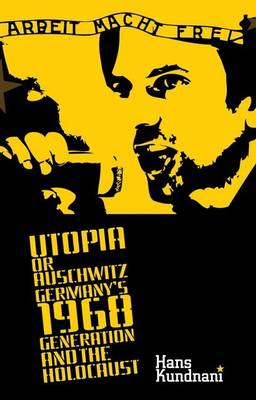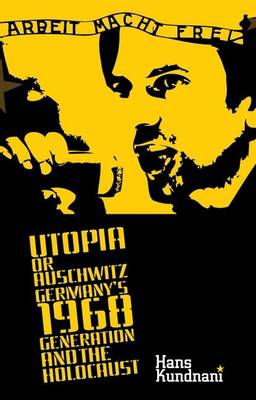
- Retrait gratuit dans votre magasin Club
- 7.000.000 titres dans notre catalogue
- Payer en toute sécurité
- Toujours un magasin près de chez vous
- Retrait gratuit dans votre magasin Club
- 7.000.0000 titres dans notre catalogue
- Payer en toute sécurité
- Toujours un magasin près de chez vous
47,95 €
+ 95 points
Description
One thing above all separated the radical students who demonstrated on the streets of West Berlin and Frankfurt in 1968 from their counterparts in Berkeley or New York. In the US, the baby boomers grew up in the shadow of what Tom Brokaw called the greatest generation. In its place, Germany had the so-called Auschwitz generation. What became known in Germany as the '68 generation' or just the Achtundsechziger had grown up knowing that their mothers and fathers were directly or indirectly responsible for Nazism and in particular for the Holocaust. Germany's 1968 generation did not merely dream of a better world as some of their contemporaries in other countries did; they felt compelled to act to save Germany from itself. It was an all-or-nothing choice: Utopia or Auschwitz. Kundnani shows that the struggle of Germany's '68 generation also had a darker side. Although the 'Achtundsechziger' imagined their struggle against capitalism in West Germany as 'resistance' against Nazism, they also had a tendency to see Auschwitz everywhere and, by using images and metaphors connected with Nazism to describe events in other parts of the world, they relativized Nazism and in particular the Holocaust. Even more disturbingly, despite the anti-fascist rhetoric of the 'Achtundsechziger', there were also anti-Semitic and nationalist currents in the West German New Left that grew out of the student movement. Utopia or Auschwitz traces the political journey of Germany's post-war generation and examines the influence that its ambivalent attitude to the Nazi past had on the foreign policy of the 'red-green' government between 1998 and 2005, which included several former members of the student movement like Joschka Fischer. The red-green government's schizophrenic foreign policy, manifested its response to the crises in Kosovo, Afghanistan and Iraq, reflected the 1968 generation's ambivalent attitude to the Nazi past.
Spécifications
Parties prenantes
- Auteur(s) :
- Editeur:
Contenu
- Nombre de pages :
- 320
- Langue:
- Anglais
Caractéristiques
- EAN:
- 9780199327034
- Date de parution :
- 22-12-09
- Format:
- Livre relié
- Format numérique:
- Genaaid
- Dimensions :
- 148 mm x 222 mm
- Poids :
- 589 g

Les avis
Nous publions uniquement les avis qui respectent les conditions requises. Consultez nos conditions pour les avis.






